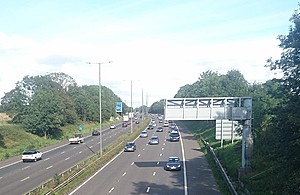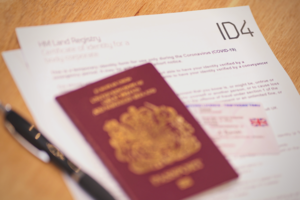£12 million improvements for Manchester to Wales motorway
Press release
The motorway which links Manchester to North Wales is getting £12 million worth of improvements to provide better journeys for drivers.

Highways England is carrying out a series of maintenance schemes along a 28-mile-stretch of the M56 during the next 12 months, including replacing the central reservation barrier near Warrington, revitalising a viaduct near Helsby, and resurfacing the motorway near Ellesmere Port.
Work is also due to take place next month to improve drainage on the section of the M56 near Manchester Airport (junctions 6 to 8) ahead of the main construction work on a major upgrade starting this autumn to reduce congestion and increase the motorway’s capacity.
Reduced speed limits and lane closures will be in place on parts of the M56 for the safety of drivers, and road workers are following strict Public Health England safeguarding measures.
Gary Knowles, Highways England’s head of scheme delivery in the north west, said:
The M56 provides an important link between Manchester and Wales, and we need to carry out a series of maintenance improvements to keep drivers safe and support essential journeys across the region.
The smoother road surface, better drainage and new central reservation barrier will improve safety for drivers, whether they’re travelling to and from work, getting food to supermarkets or delivering medical supplies to hospitals.
We’re doing everything we can to keep workers safe and would urge drivers to do their bit too by sticking to the speed limit for their own and our road workers’ safety.
A bridge maintenance scheme is also due to start this weekend at a junction on the A55, along the route from the M56 which links Chester to Wrexham in North Wales.
Get more details and roadworks information on the M56 maintenance schemes.
General enquiries
Members of the public should contact the Highways England customer contact centre on 0300 123 5000.
Media enquiries
Journalists should contact the Highways England press office on 0844 693 1448 and use the menu to speak to the most appropriate press officer.
Published 1 May 2020


